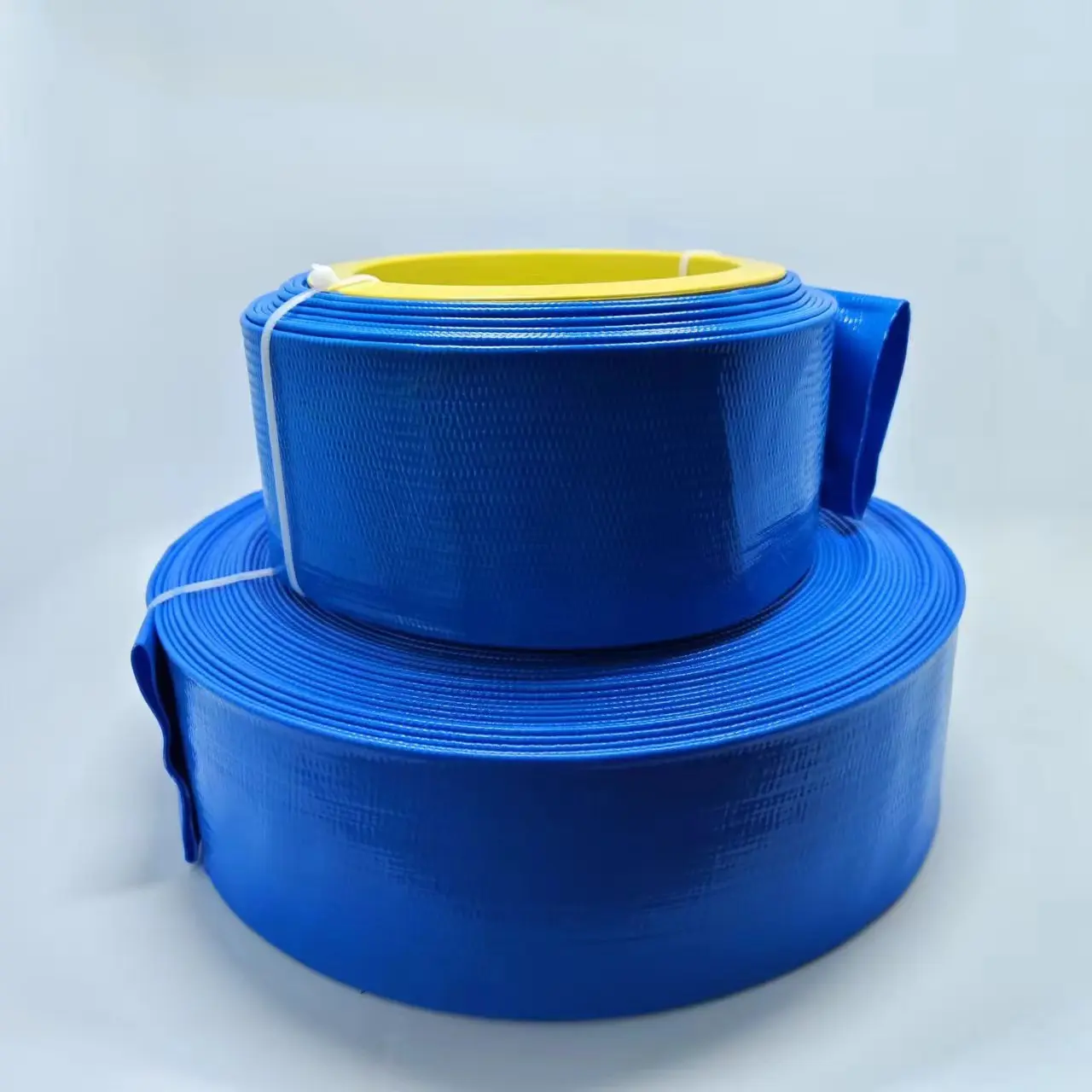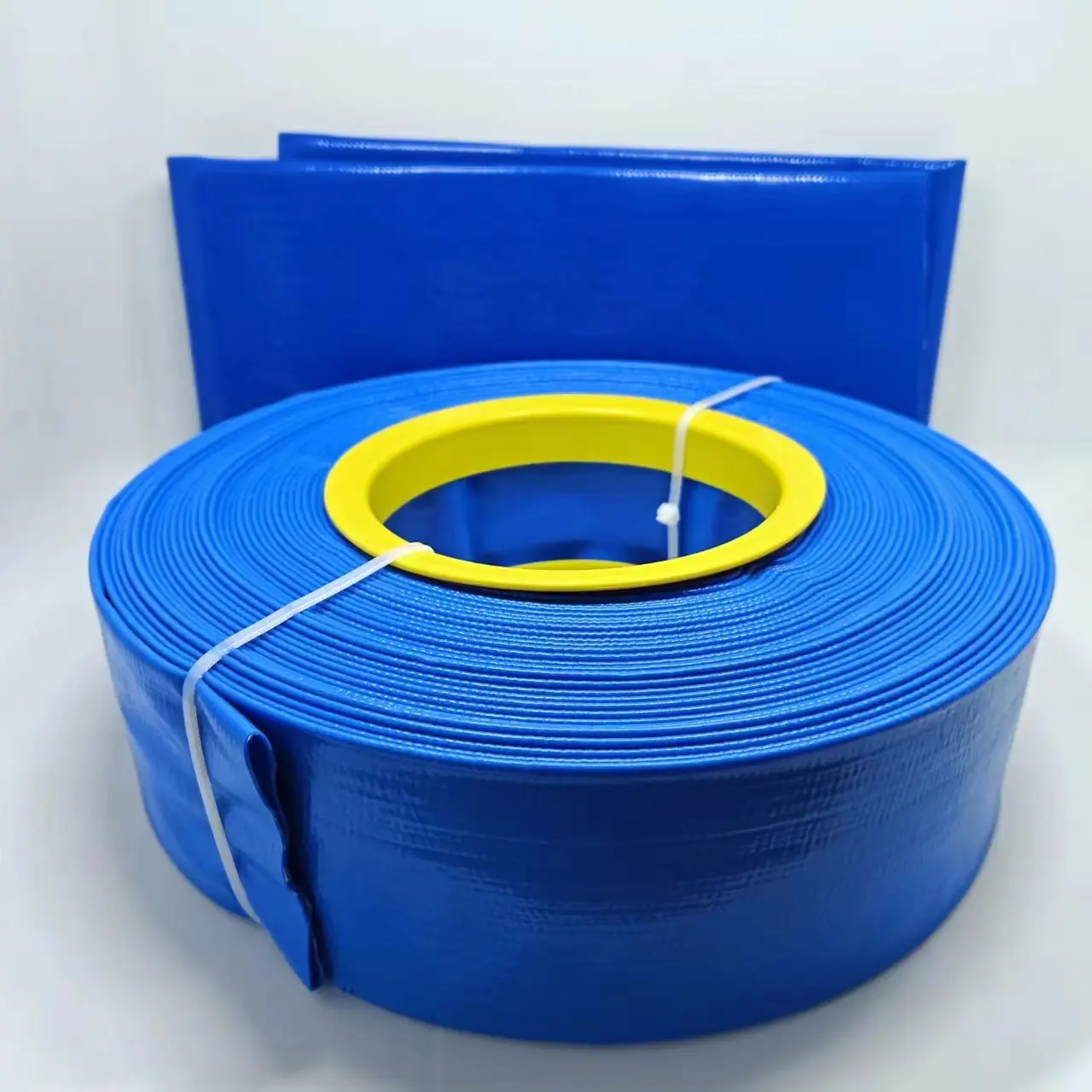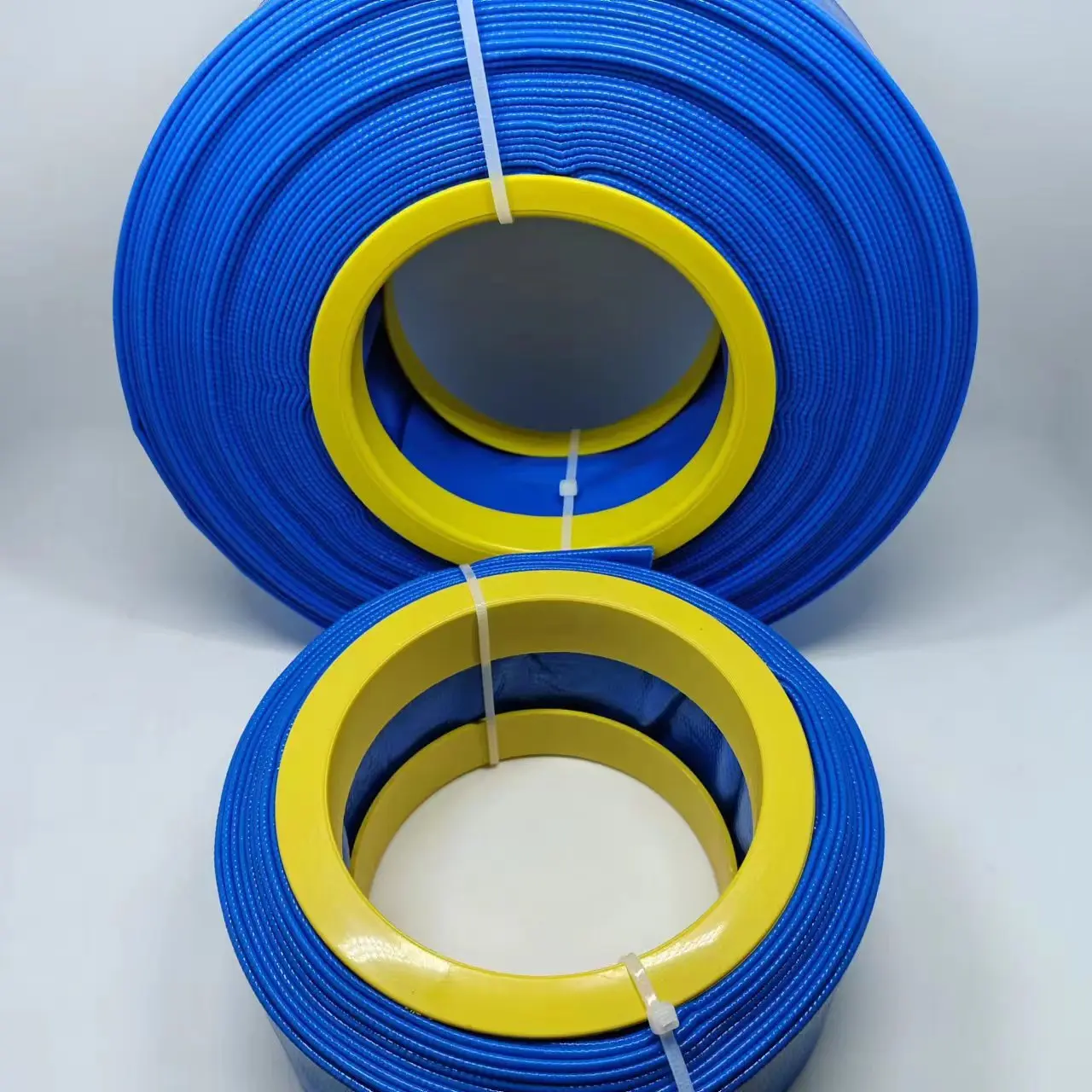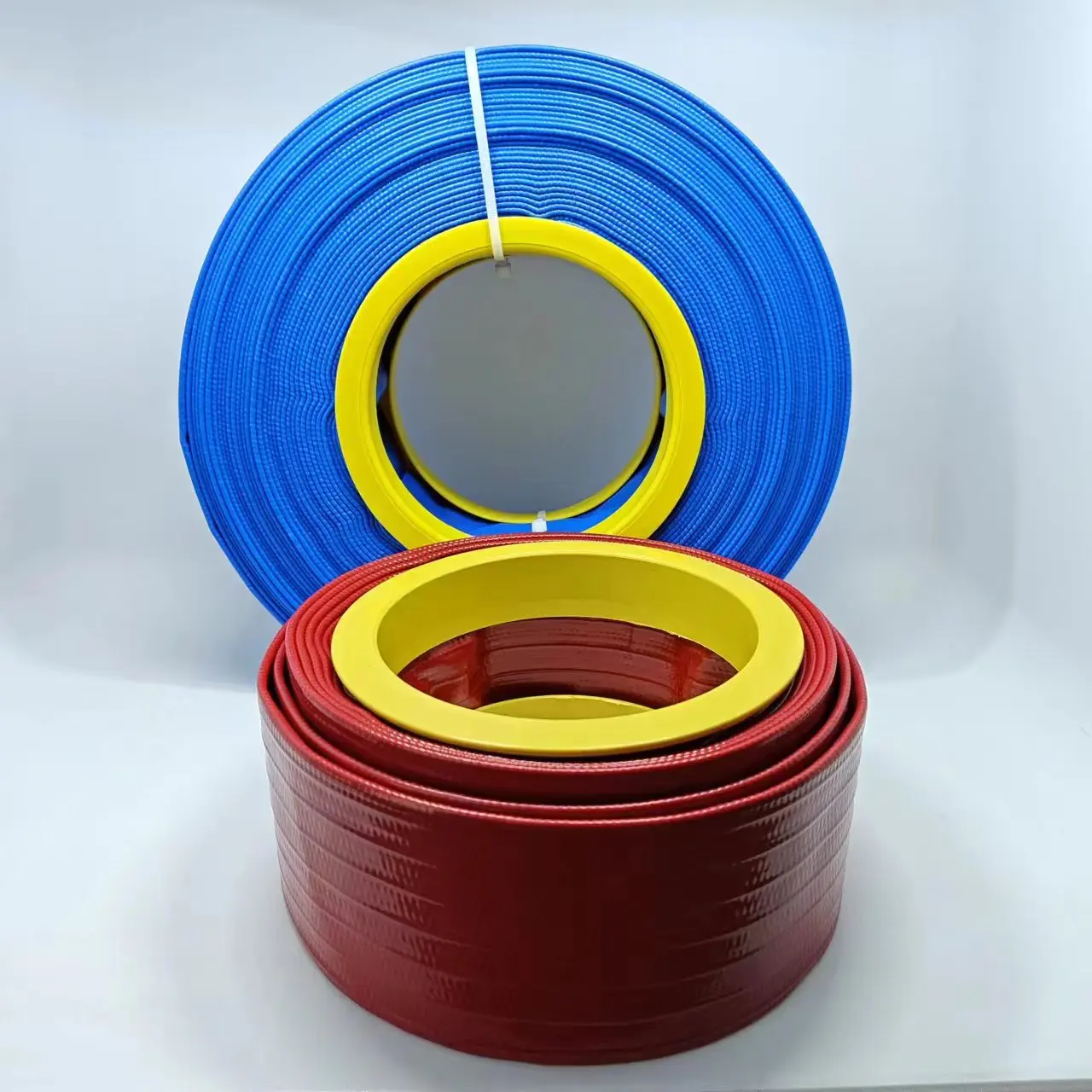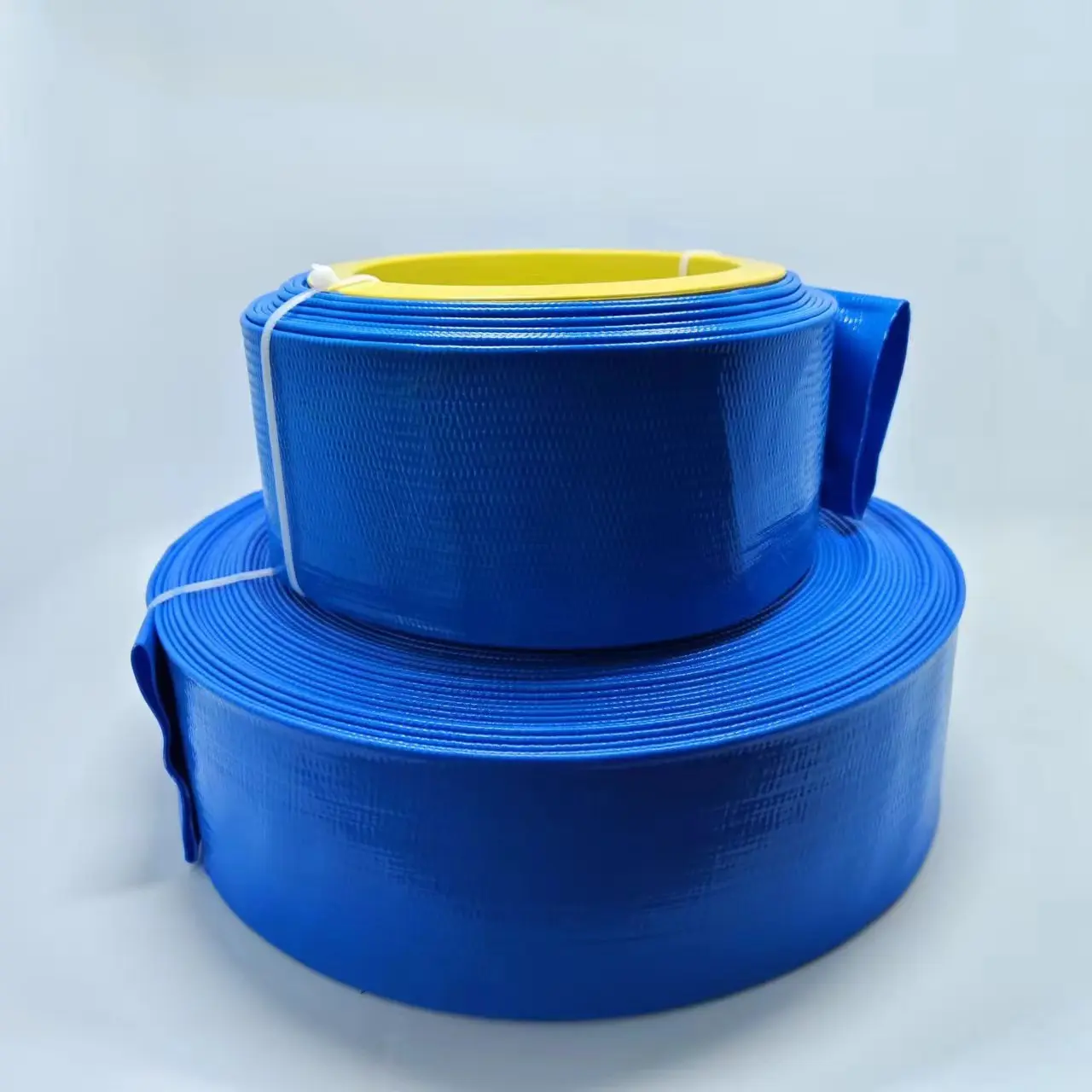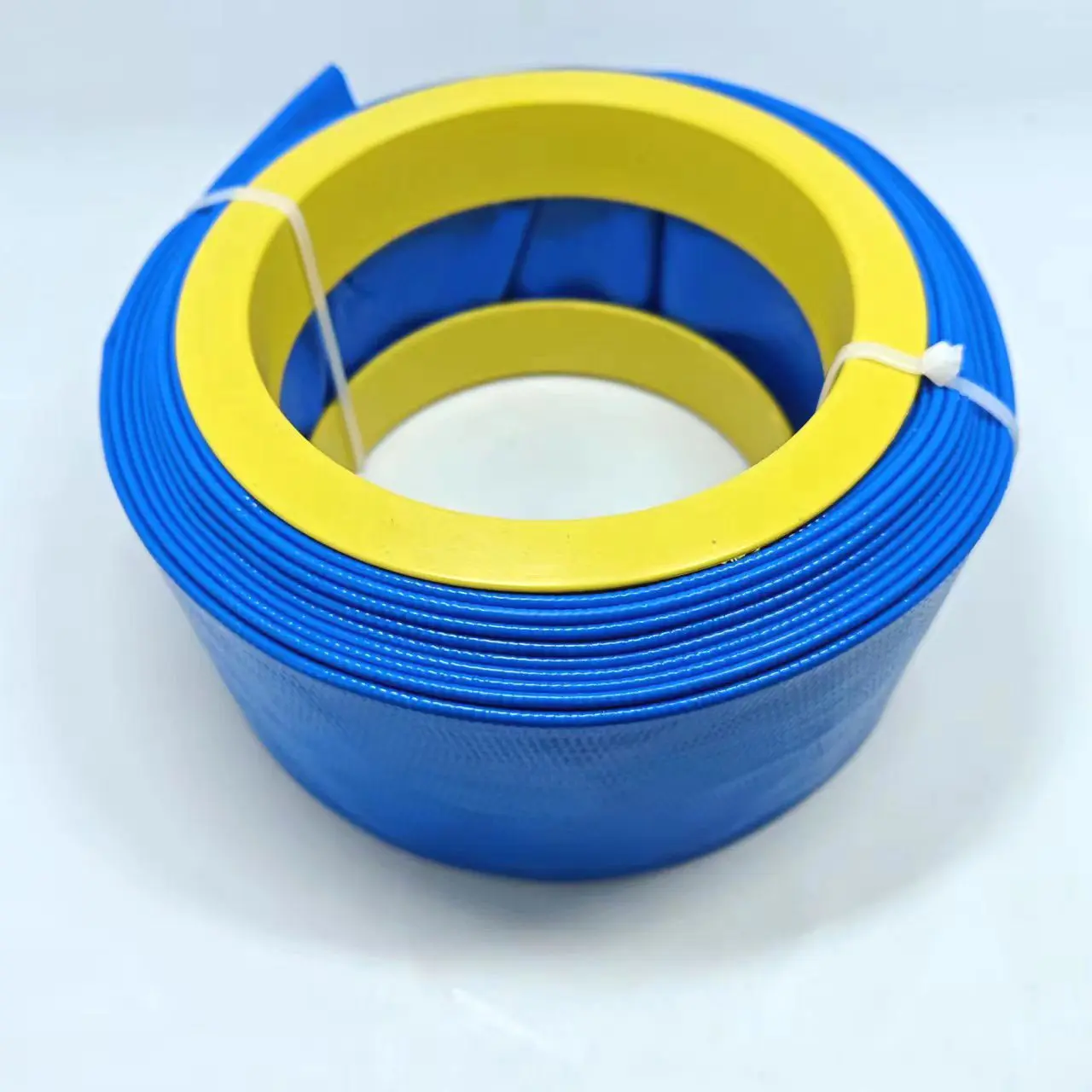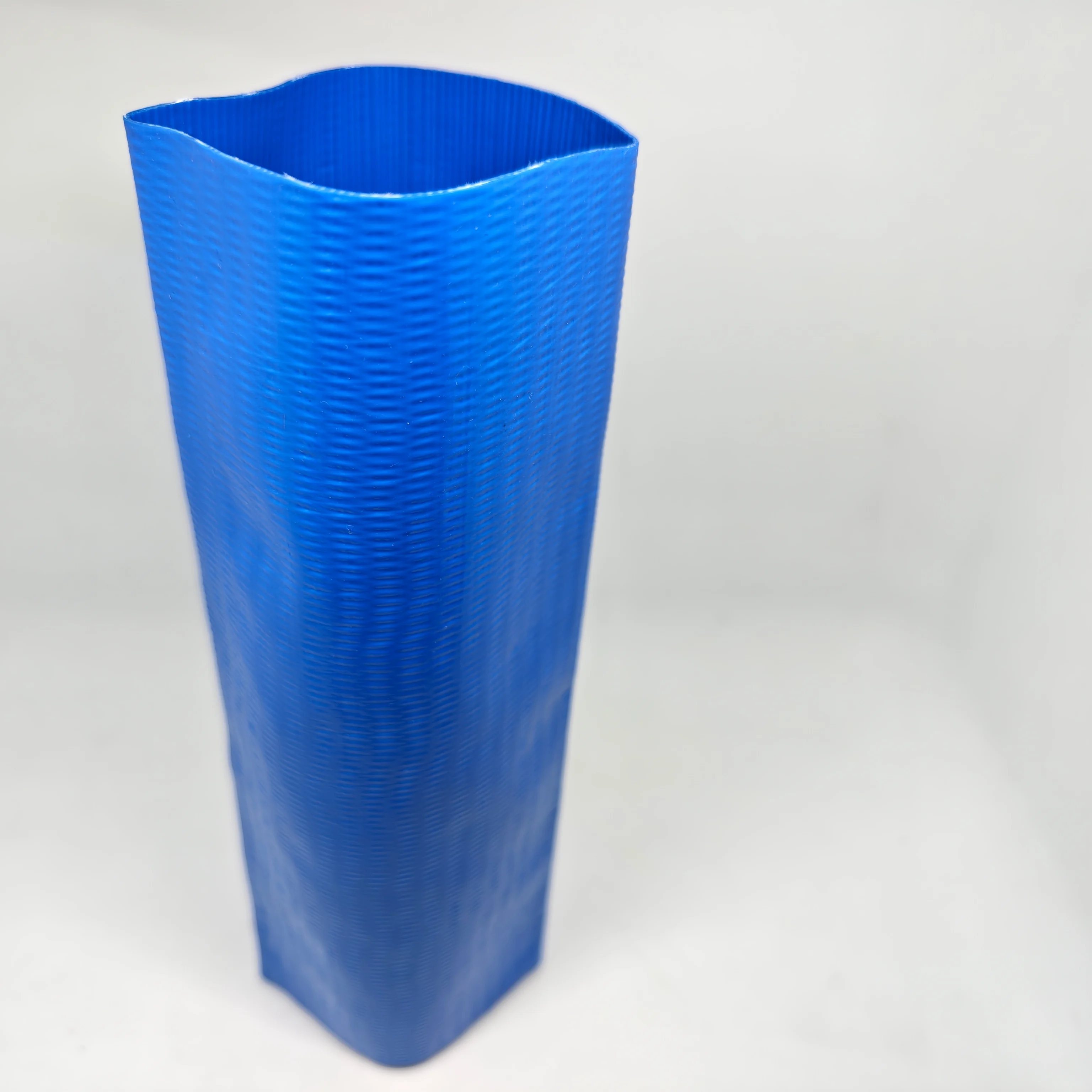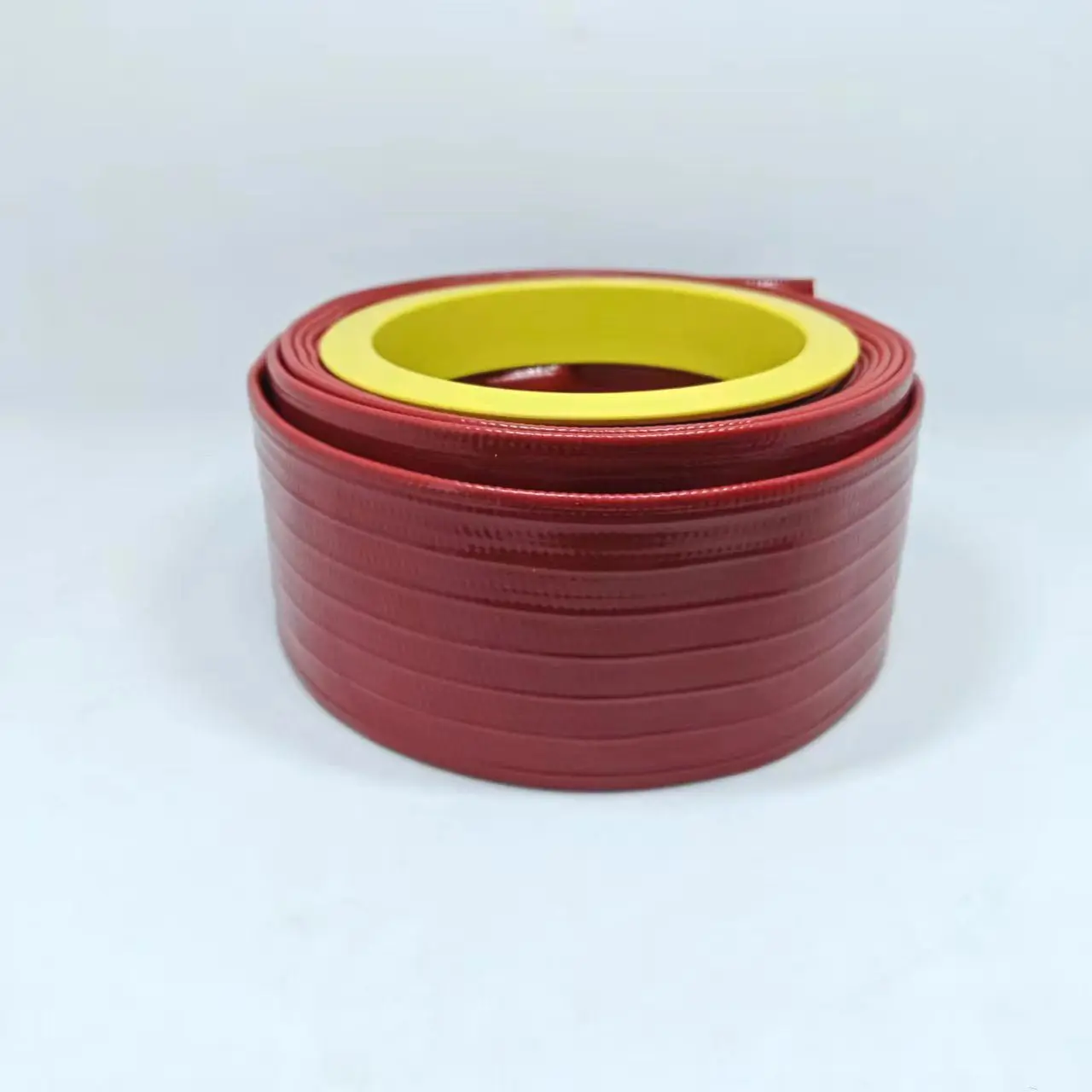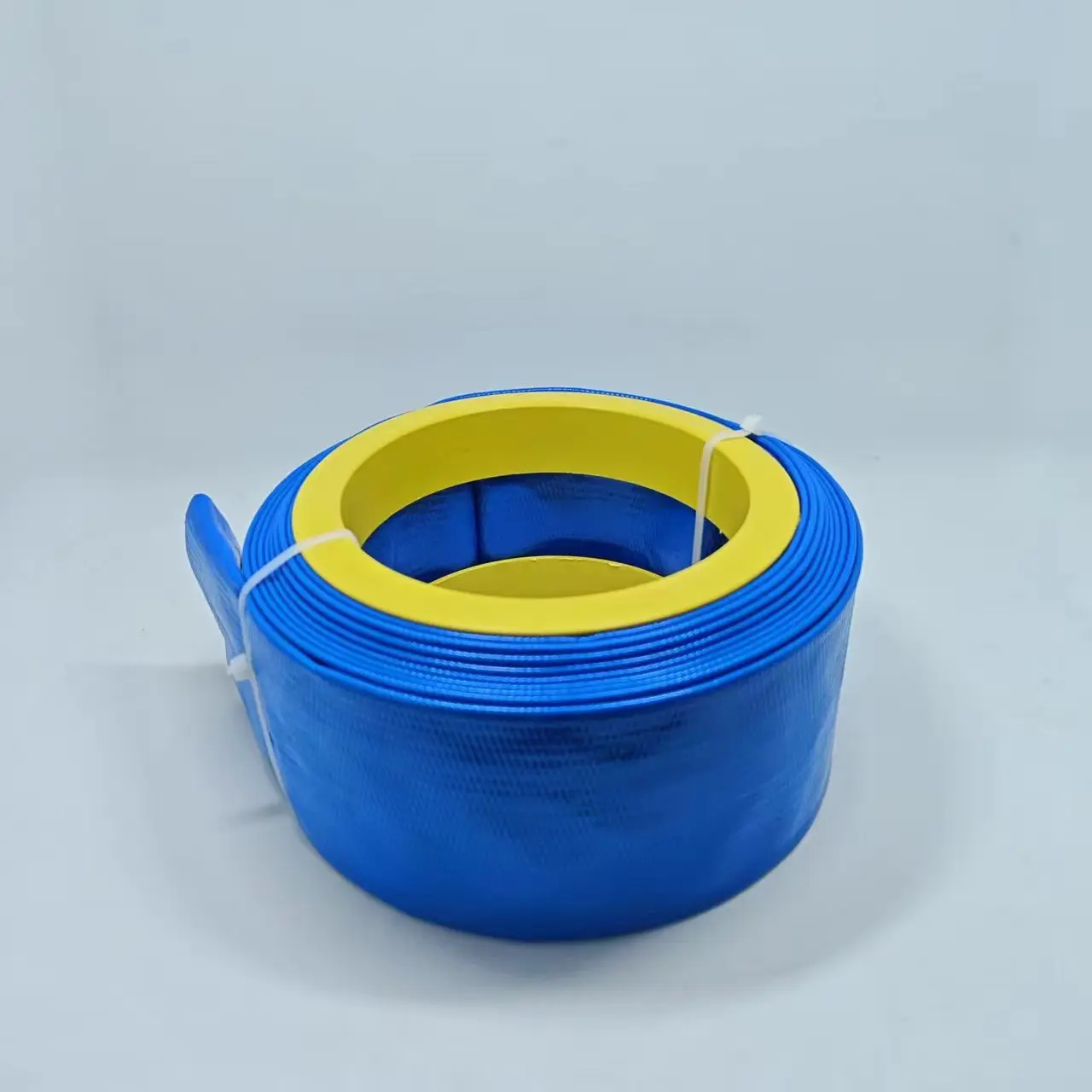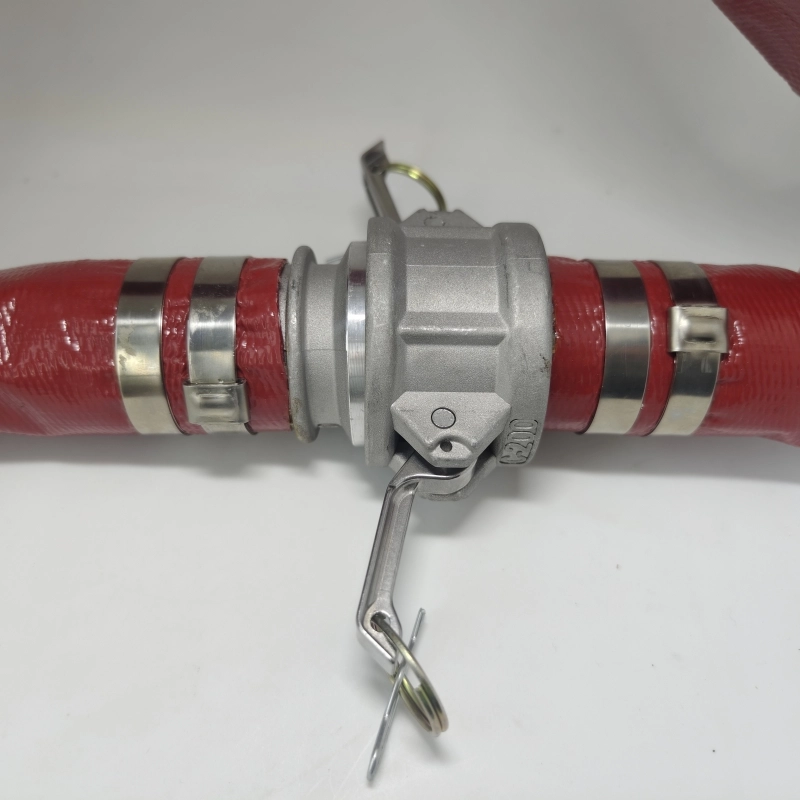Basic Introduction to PVC Layflat Hose
PVC Layflat Hose is a lightweight, flexible flat hose primarily used for agricultural irrigation, drainage, and temporary water transfer. When not in use, it can be rolled up for compact storage, and when filled with water, it expands into a circular shape for efficient water flow.
In Ghana, this hose is widely popular due to its portability and low cost, especially among small-scale farmers and for drainage during the rainy season. Ghana’s climate is divided into dry and wet seasons, with farmers needing efficient irrigation during the dry season and quick drainage during the rainy season, making PVC Layflat Hose a practical choice.
Compared to traditional metal or rubber pipes, PVC Layflat Hose is lighter, easier to transport, and simpler to install, making it suitable for rural areas in Ghana where infrastructure is limited. Additionally, its low maintenance cost and ease of repair further reduce barriers to use.
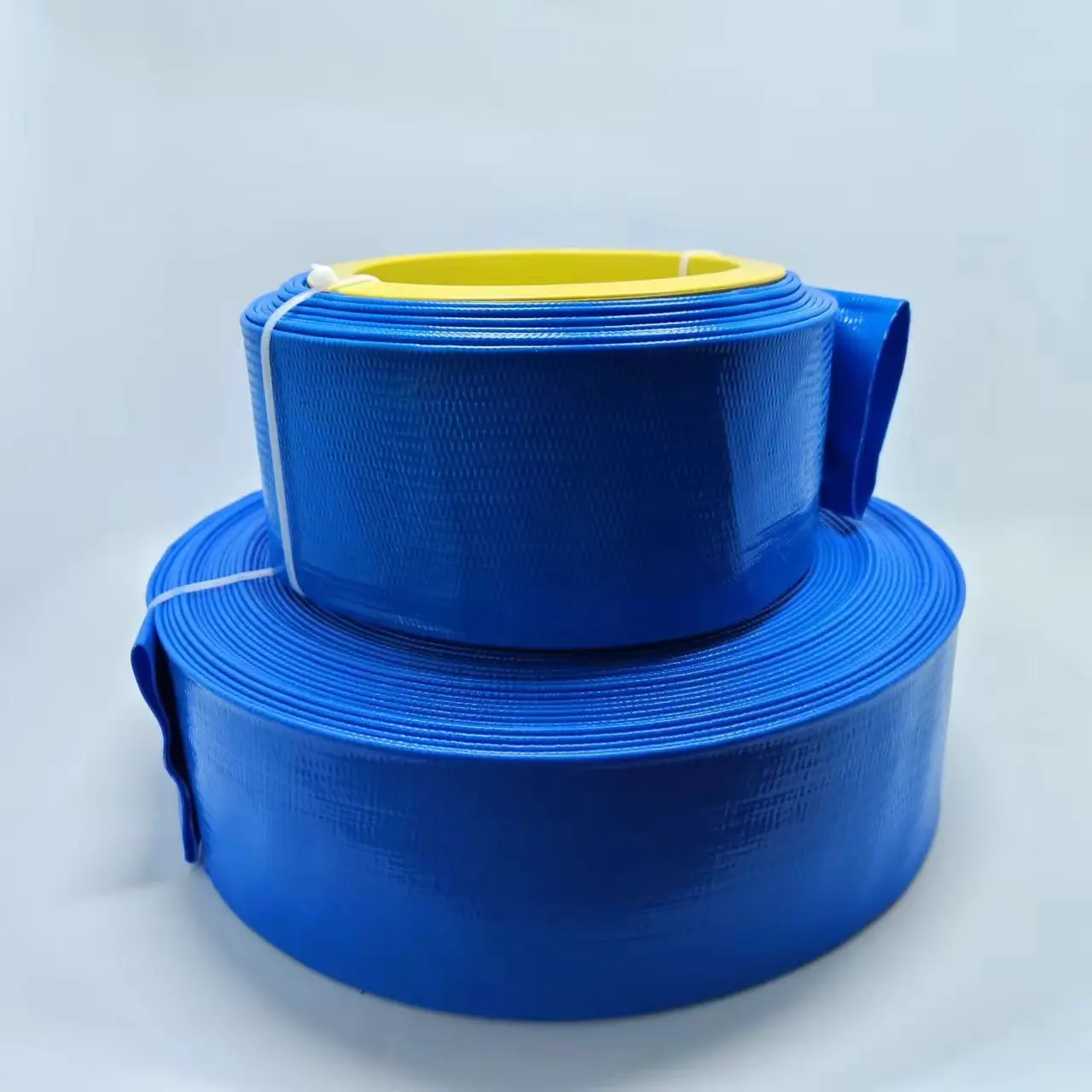
Primary Applications of PVC Layflat Hose in Ghana
(1) Agricultural Irrigation
Ghana’s agricultural sector is dominated by small-scale farmers, many of whom lack advanced irrigation systems. PVC Layflat Hose, due to its flexibility and affordability, is commonly used for irrigation in small farms. Farmers can easily channel water from sources like rivers, wells, or reservoirs to their fields, particularly for crops like vegetables and maize using drip or flood irrigation.
(2) Drainage During the Rainy Season
Ghana’s rainy season (typically from April to October) brings heavy rainfall, leading to waterlogging in some areas, which affects crop growth and daily life. PVC Layflat Hose can be used for temporary drainage, helping farmers quickly remove excess water from fields to minimize crop damage.
(3) Temporary Water Supply at Construction Sites
In both urban and rural construction sites in Ghana, PVC Layflat Hose is often used for temporary water supply, such as for concrete mixing or dust suppression. Its flexibility makes it resistant to damage from squeezing or movement in rugged environments.
(4) Household and Community Water Supply
In some remote areas, residents rely on temporary water sources. PVC Layflat Hose helps channel water from public stations or rivers to homes for daily use.
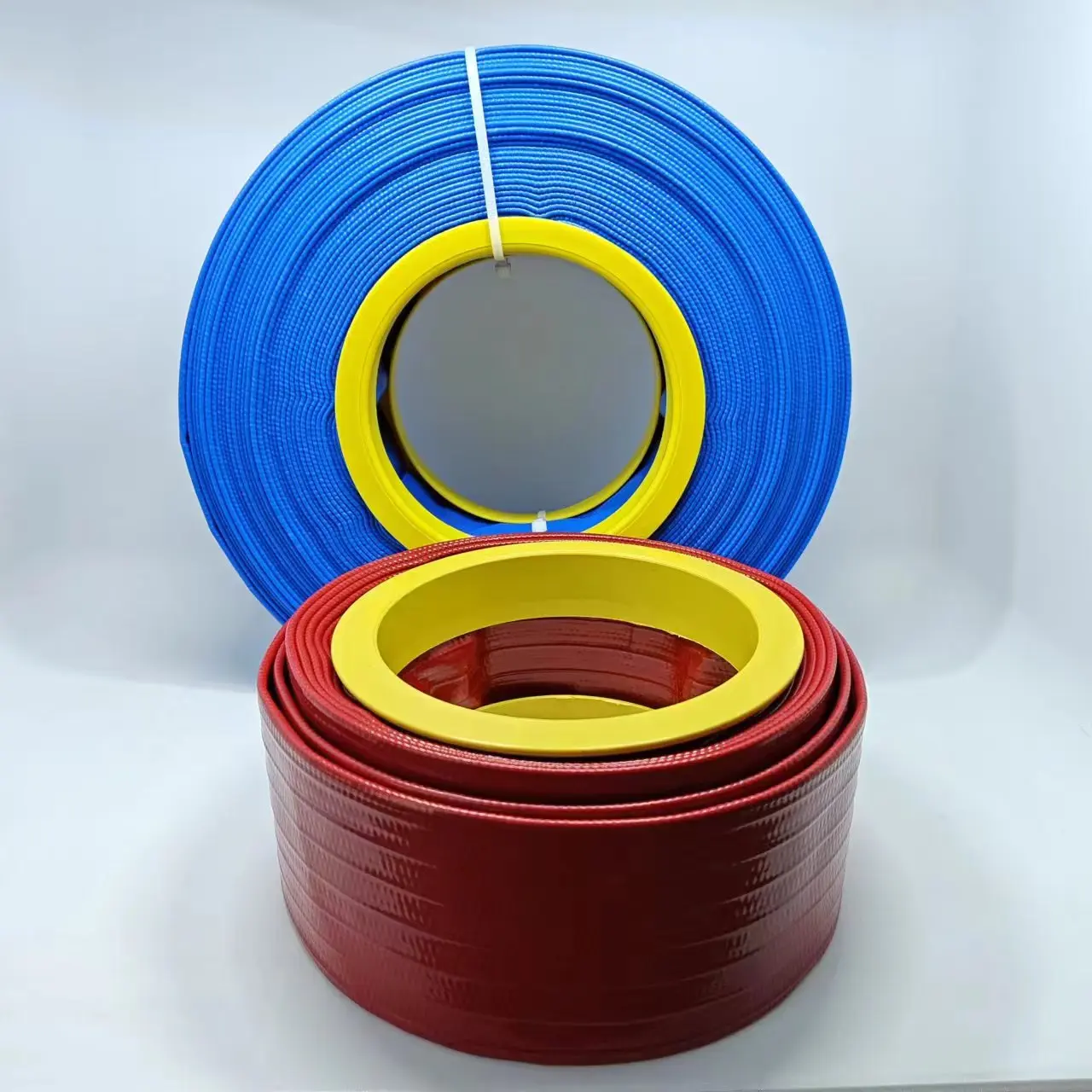
Demand Analysis for PVC Layflat Hose in the Ghanaian Market
High Dependence on Agriculture: Agriculture is a key economic driver in Ghana, contributing about 20% of GDP, creating ongoing demand for affordable irrigation tools among small-scale farmers.
Climate Characteristics: The alternating dry and wet seasons necessitate flexible water transfer and drainage solutions.
Infrastructure Limitations: Many rural areas lack fixed irrigation systems, making PVC Layflat Hose a cost-effective alternative.
Price Sensitivity: Ghanaian consumers prioritize affordability, making moderately priced PVC hoses more popular than high-end irrigation equipment.
Common Specifications of PVC Layflat Hose in the Ghanaian Market
| Diameter (Inches) | Common Length (Meters) | Primary Use |
|---|---|---|
| 2" | 15 - 30 | Small-scale household irrigation, temporary water supply |
| 3" | 20 - 50 | Medium-sized farm irrigation, construction site water supply |
| 4" | 30 - 100 | Large-scale farm irrigation, drainage |
| 6" | 50 - 150 | Community water supply, large-scale drainage projects |
Ghanaian consumers tend to prefer medium-sized hoses (2"-4") as they balance water flow and portability.
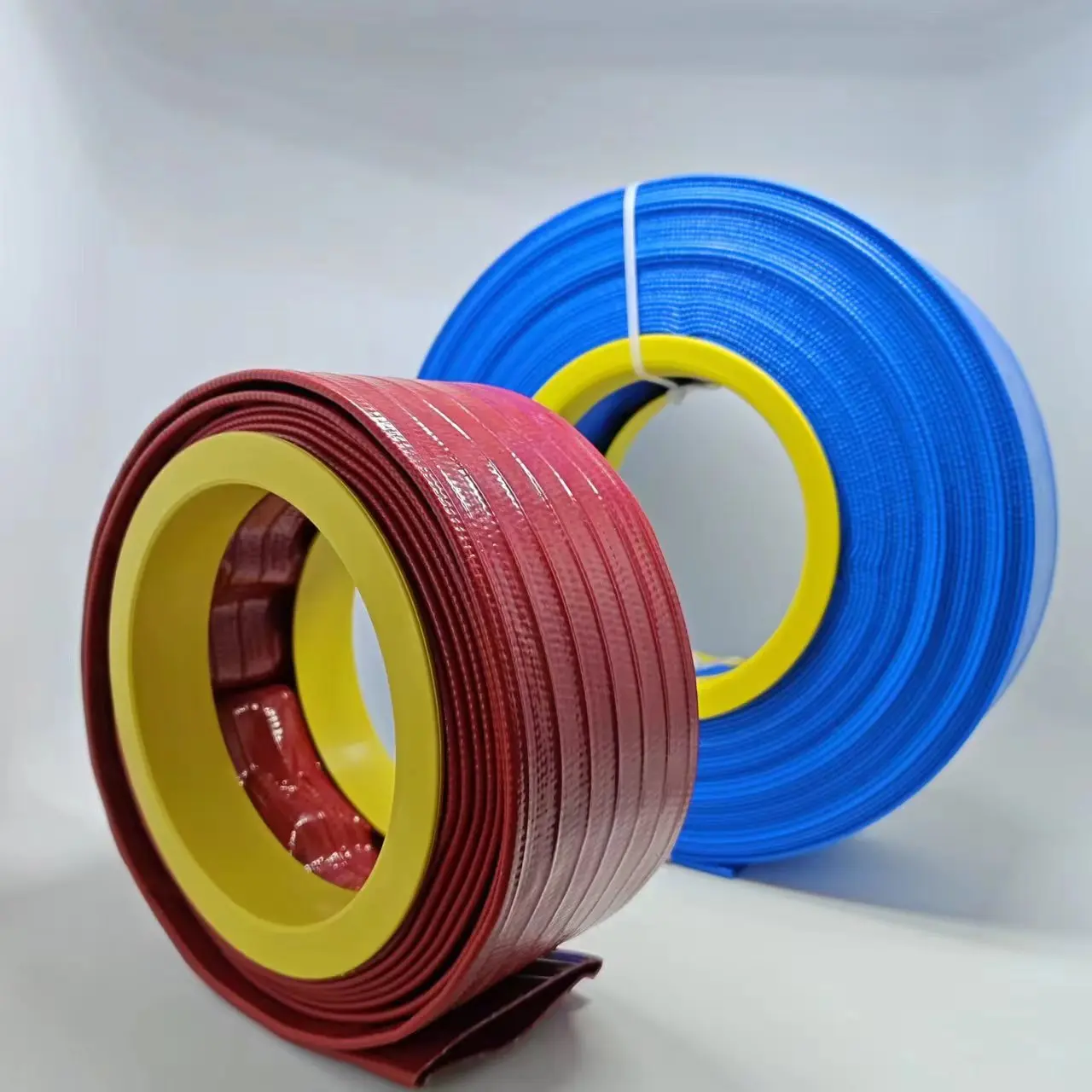
Comparison with Competing Products in the Ghanaian Market
Apart from PVC Layflat Hose, the Ghanaian market offers the following alternatives:
Rubber Hoses: More durable but expensive, suitable for long-term fixed use but less portable.
PE Hoses: More UV-resistant than PVC but slightly costlier, with a smaller market share in Ghana.
Metal or PVC Rigid Pipes: Suitable for fixed installations but inconvenient to transport and store, making them less common in rural areas.
In comparison, PVC Layflat Hose offers better affordability, portability, and versatility, giving it a larger market share in Ghana.
Key Considerations for Using PVC Layflat Hose in Ghana
Avoid Prolonged Sun Exposure: Ghana’s intense sunlight can degrade the hose over time, so store it in a shaded area when not in use.
Protect Against Sharp Objects: Fields or construction sites may have rocks or branches that can puncture the hose, so avoid dragging it over rough surfaces.
Regular Inspections: Check for leaks or damage before use; small holes can be patched with repair tape.
Proper Storage: After use, drain the water and roll it up for storage to prevent creases that may lead to cracks.
These measures can help reduce replacement frequency and save costs.
